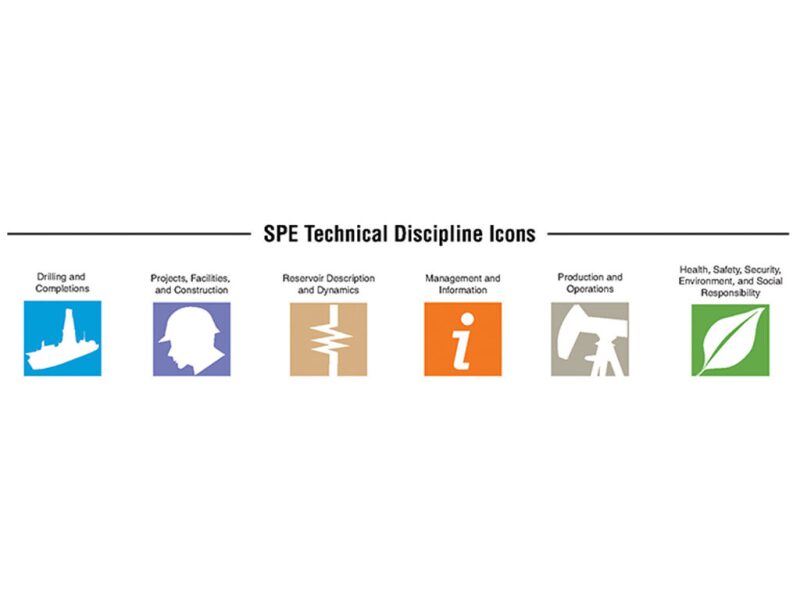Although we often describe ourselves generally as “petroleum engineers” to those outside the industry, we wear a number of hats: production, drilling, completions, reservoir, facilities, and projects, to name a few. Depending on your employer and the size of your company, you may be a jack-of-all-trades or a specialist in a niche of the industry. When deciding on training courses, conferences, and symposiums to attend, or even where to pose a question on the SPE technical forums, it is important to understand how SPE is organized into technical disciplines.
On the membership and renewal forms, SPE requires members to designate a primary technical discipline with an optional secondary discipline. If your job requires you to be multidisciplinary, you can also choose from a large number of subdisciplines that apply to your role. Designating these disciplines helps SPE to tailor invitations to conferences, workshops, and training courses that you might be interested in. If your job changes, make sure to update your discipline preference in your profile.
SPE comprises six technical disciplines, which are semiautonomous and (mostly) self-governing. Each discipline is led by a technical director, who holds his or her office for a term of 3 years and is selected by a nominating committee made up of members from the discipline. The six disciplines (a question almost always asked in the annual PetroBowl competition) are Drilling and Completions; Production and Operations; Health, Safety, Security, Environment, and Social Responsibility; Projects, Facilities, and Construction (PFC); Reservoir Description and Dynamics; and Management and Information.
Technical disciplines change slightly over time as the focus of the industry shifts and technology advances. With the approval of the SPE Board of Directors, technical sections, which are groups in which members can share ideas, and develop projects related to their technical interest, can be created to cover these topics.
Several SPE publications cover these six disciplines: JPT, SPE Journal, SPE Drilling & Completion, SPE Production & Operations, SPE Reservoir Evaluation & Engineering, SPE Economics & Management, Journal of Canadian Petroleum Technology, and HSE Now.
Oil and Gas Facilities, launched in 2012 and the newest of the SPE technical publications, is dedicated to the PFC discipline. SPE members who have designated PFC as their primary or secondary discipline receive the magazine for free (another good reason to ensure that you have your discipline preferences filled out in your profile).
If you are uncertain which discipline your job falls into, a comprehensive list of subtopics within the disciplines is available at www.spe.org/disciplines/discipline-coverage. The list may be worth a perusal, as how the subtopics are organized might surprise you.
Each discipline has its own Web page (www.spe.org/disciplines) and brings together conferences, calls for papers, web events, and training courses that you might be interested in attending as a member of the community.
Six icons are used for the six disciplines on the SPE website and can help you search through the plethora of SPE events by discipline. More often than not, events will be multidisciplinary and will show several of the corresponding icons.
SPE technical disciplines also promote networking and knowledge-sharing among members. And the easiest way to benefit from it is through SPE’s online community SPE Connect. When looking for solutions to specific problems or for new contacts in your field, check out the platforms on SPE Connect. The discussion posts can be valuable when facing a challenging technical problem.
Although it may seem difficult to label yourself with a one-discipline persona, the reality is that you are (and should be) multidisciplinary in your career. Rather than a way to separate the membership into isolated spheres, the technical disciplines serve as a springboard from which you can pursue knowledge and networks that, quite often, cross the organizational divide.
It all starts with a simple choice: Which technical discipline are you?

